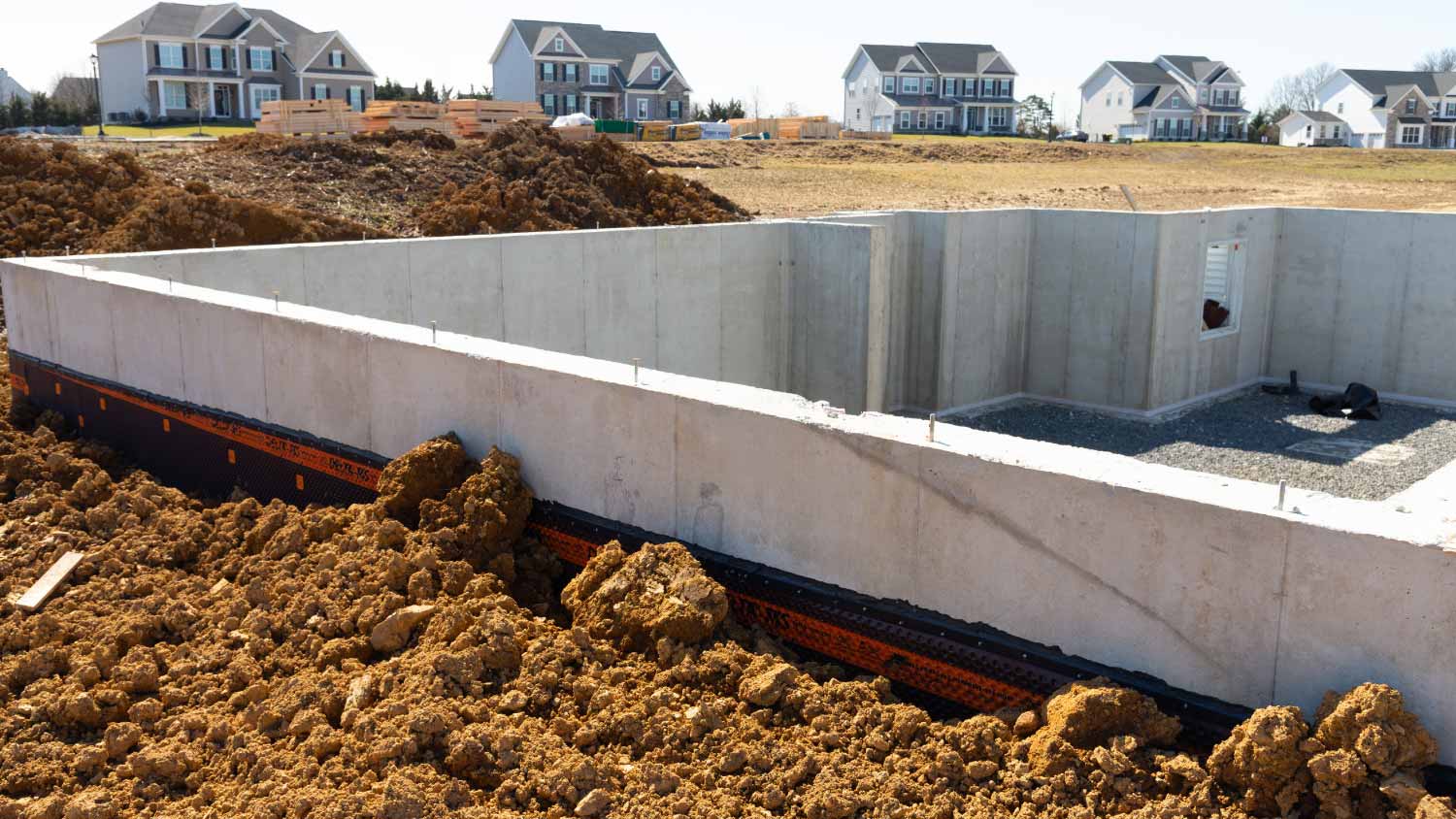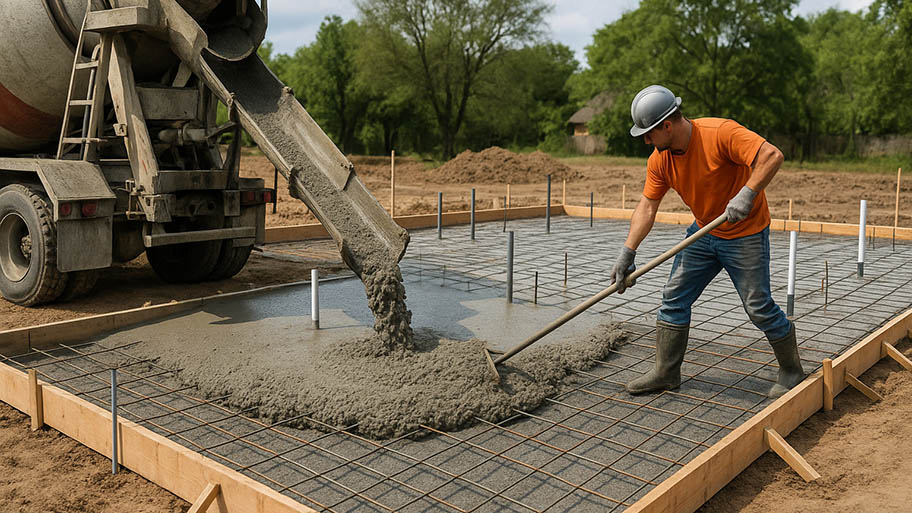
Plumbing leaks are never fun, but they’re worse when they happen inside your foundation. Use this guide to slab leak repair costs to see what you’re up against.
Keep your home on solid footing for as long as possible


The stability of your home is only as strong as the foundation underneath it. A concrete foundation keeps your home structurally sound, but how long can you expect your concrete foundation to last? Use this guide to learn how long you can expect your foundation to last, what factors can extend or shorten its life span, and how you know it’s time to repair or replace it.
A properly constructed concrete foundation can last 80 to 100 years or more. It’s not uncommon to find concrete foundations 200 years old or older that are still in good condition, but the life span of modern concrete foundations can vary and is affected by different factors ranging from how the foundation is built to the environmental conditions of the area.
Newly constructed foundations should remain strong and in good shape for up to a century as long as they’re built well, but foundations of older homes may show signs of wear or damage in the decades leading up to that 100-year mark.
Regular inspections are key to keeping your foundation in good shape and avoiding costly repairs. Look for cracks and address them promptly. Make sure you have proper drainage around your home by maintaining clean gutters and downspouts, grading the landscape to slope away from the foundation, and avoiding excessive watering near the foundation.

How long concrete foundations can last depends on various factors. Some issues can cause small problems that require repairs, while others can contribute to failing foundations that need full replacement.
If your concrete foundation isn’t properly built, problems can arise much sooner than expected. Some construction issues that can shorten your foundation’s life include:
Improperly mixed concrete
Poor quality materials
Inadequate reinforcement
Lack of proper ground preparation
Building above the frost line
Soil erosion below and around the foundation can lead to shifting or settling and cause foundation cracks. Erosion can be caused by pooling water, heavy rains, droughts, and other weather and climate conditions.
A wet foundation is prone to cracking and breaking, so it’s critical to ensure your drainage system and waterproofing methods are up to the task. If water is allowed to penetrate the foundation, it will compromise the integrity of the concrete. It’s important to take steps to keep water away from your foundation and ensure these systems are well maintained.
Trees and other plants can damage your foundation when large roots grow into—and eventually through—the concrete. Trees planted too close to the house have far-reaching root systems that can exert pressure against the foundation, causing cracks, splits, or shifting. This damage happens underground and out of sight, so your foundation can have extensive damage before you even notice.
In the most extreme cases, you may need to replace your foundation in order to maintain the structural integrity and safety of your home. Signs of foundation issues that indicate you might need a new foundation include:
Large cracks in the foundation or walls
Sections of the home that are sinking or shifting
Walls or ceilings that are separating or bowing
Sloping floors
Leaning chimneys
Extending the life of your concrete foundation takes a little bit of effort that’ll pay off in the long run. Some steps you can take include:
Regularly inspect and maintain your drainage system, including gutters, foundation grading, and other drainage components.
During droughts or exceptionally dry periods, water your foundation to prevent soil erosion.
Maintain foundation waterproofing.
Have your foundation professionally inspected regularly. A foundation inspection costs an average of $600, and is well worth it to spot any potentially costly problems down the road.
Replacing a concrete foundation is a major investment in both time and money. Identifying and repairing problems early on will save you a lot of money and headaches. Most foundation repairs should be performed by a contractor who specializes in foundation repair to ensure the job is done safely and correctly.
A local foundation repair contractor will be able to assess any problems with your foundation and make the necessary repairs before the problems get big enough to require replacing your foundation.
From average costs to expert advice, get all the answers you need to get your job done.

Plumbing leaks are never fun, but they’re worse when they happen inside your foundation. Use this guide to slab leak repair costs to see what you’re up against.

A foundation for a new-build home averages around $11,000. Find out all the factors that affect the cost of a foundation and how to save money.

Foundation repair costs can be tricky when you have a large repair on your hands. This guide walks through costs from small cracks to total replacement.

Can’t tell the difference between a footing versus a foundation? Learn how they differ and how to tell them apart in this guide to foundations and footings.

Need to build a solid base for your new shed? Learn about 12 different kinds of shed foundations and which might be appropriate for your project.

Your home's foundation wall is one of its most crucial construction features. Learn what it is, how to build one, and what to do if it needs repair.